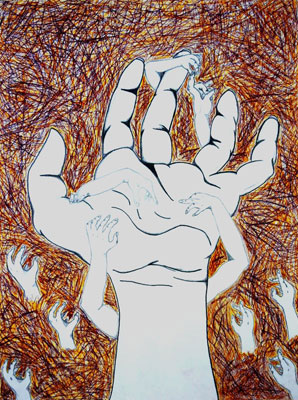All Nonfiction
- Bullying
- Books
- Academic
- Author Interviews
- Celebrity interviews
- College Articles
- College Essays
- Educator of the Year
- Heroes
- Interviews
- Memoir
- Personal Experience
- Sports
- Travel & Culture
All Opinions
- Bullying
- Current Events / Politics
- Discrimination
- Drugs / Alcohol / Smoking
- Entertainment / Celebrities
- Environment
- Love / Relationships
- Movies / Music / TV
- Pop Culture / Trends
- School / College
- Social Issues / Civics
- Spirituality / Religion
- Sports / Hobbies
All Hot Topics
- Bullying
- Community Service
- Environment
- Health
- Letters to the Editor
- Pride & Prejudice
- What Matters
- Back
Summer Guide
- Program Links
- Program Reviews
- Back
College Guide
- College Links
- College Reviews
- College Essays
- College Articles
- Back
The Feeling of Acceptance is Gained Through Social Media
Teenagers find it necessary to join social networking and to constantly feel connected. One may say that being “in the loop” with friends and trends is crucial to receive the latest updates. Despite the benefits of sharing ideas, photos, and experiences world wide, the addiction of social media can lead to technological withdrawal. Youth today are highly dependent on technology and rely on the satisfaction of “likes” and “re-tweets” for the feeling of acceptance. Social media brings us false self-esteem, a lack of independence, and determines our ranking of popularity. Perhaps, the urge to be accepted by society lies within the fingertips of our so-called “friends” and “followers.”
Each time my finger taps little blue bird sitting on my smart phone, there is a trending topic awaiting to be tweeted about. Regardless of the discussion, people will “hash-tag” simply to portray their online persona to the world. Receiving attention through networks such as Twitter is not only enjoyable, but also satisfying. Thus self-esteem is merely gained through “gold stars,” “likes,” and “red hearts.” Furthermore, this short span of amusement and pleasure from a well-liked post can change drastically when the next results in negative feedback from followers. I believe my peers and I crave a response after each post and long for that small jingle in our pocket. Without these frequent notifications, we tend to feel isolated and unaccompanied.
Youth today are born on the Internet. Social media invades our mind by letting others shape our independence. So, I often ask myself: Have we lost the ability to be alone and not be defined by any other person? It appears that the latest generations are using social networks as a “fix” to fulfill the addictive habits of technology. Consequently, one’s tolerance of using online profiles will grow stronger regardless of the number of “favourites,” “re-tweets,” or “likes” received. When teens stop enjoying Twitter, Facebook, or Instagram in moderation, they will lack the independence to post things out of self-interest and rely on the satisfaction of others to feel accepted by their community. Therefore, they will soon lack the “high” they crave and start to feel obscure and worthless. After all, a post with meaningless feedback is like a drug with no high.
Although Twitter is a series of ideas expressed with no more than 140 characters per tweet, the social application itself is much more complex. Like Facebook “friends” or Instagram “followers,” Twitter too, has a public display of popularity. Regardless of how many best friends one may have, off the web, twitter clearly emphasizes who is more “well known.” Individuals who list sky rocketing followers are the people who build the biggest ego. Considering some user’s posts do not appeal to the majority, clicking “follow” would not be out of one’s best interest. Those who have a scarce amount of followers are intimidated by users who appear to be famous and well-liked. Furthermore, they take this scale of popularity too far in depth and feel as if they are losing a race against their peers. Who knew such a little blue bird could fly so high to the point of breaking the ozone of self-esteem.
Considering three year olds can now operate iPhones with minimal instruction, children today will be even more liable to be hooked in years to come. Youth’s unconscious minds have started to gather the impression that creating social profiles is the norm. Thus future generations must learn to receive satisfaction out of their own interests, and not allow social networking to influence their outlook on who they really are. The effect of social applications should not determine one’s individual identity or feeling of acceptance in their community.

Similar Articles
JOIN THE DISCUSSION
This article has 0 comments.
